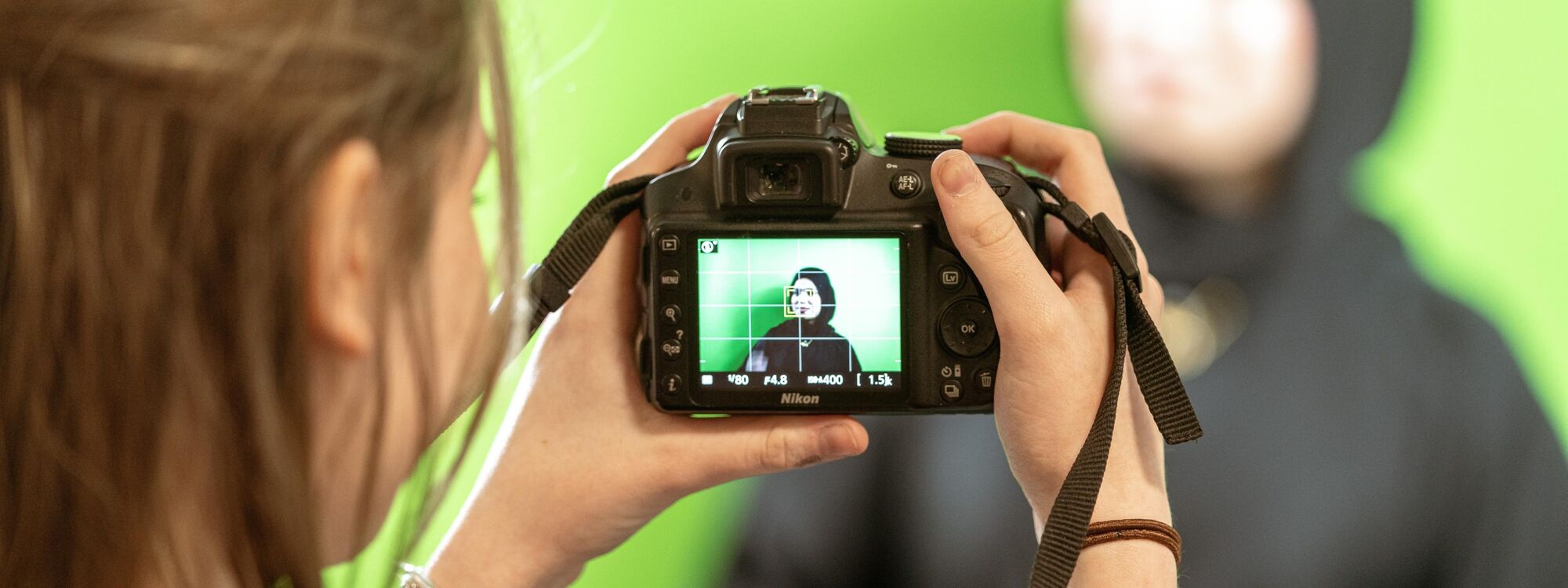- Home
- Courses
- Courses
- Media Studies
Media Studies is a vast and diverse subject, which includes studying media processes ranging from historical sectors to the ultracontemporary sub-sectors. A level Media Studies will introduce you to many different media outlets and encourages theoretical considerations across all platforms studied. Audience reception, representation, regulation and ownership, and gender theory are just some of the issues you will learn about.
Entry requirements
To study at RSFC, you must have achieved a minimum of five GCSEs or equivalent at grade 4 or above across four separate subjects, including GCSE Mathematics and/or English Language.
Why study this course?
Media is at the forefront of our social and cultural existence and is the digital platform that consumes, shapes and evolves our own personal identities. Studying this A level allows you to delve into subject areas that relate to your personal tastes, choices and lifestyle.
What can you expect from A level Media Studies?
A level Media Studies allows you to question the validity of the information you receive on a daily basis and to be aware of bias within the media, so that by the end of the twoyear course you should have an even better understanding of the world we live in. As well as studying existing media, you will have the opportunity to consolidate your learning by creating your own cross-media project. This will help you to develop expertise in professional-standard software, such as Adobe Photoshop.
KEY TOPICS - YEAR 1
Component one:
• Section A – analysing media language
• Advertising
• Marketing
• Music videos
• Newspapers
• Section B – understanding media industries and audiences
• Television
• Radio
• Newspapers
• Films
• Video games
KEY TOPICS- YEAR 2
Component two:
• Section A – television in the global age
• Section B – magazines: mainstream and alternative media
• Section C – media in the online age
What can I do with a qualification in Media Studies?
Media Studies students typically enter careers in the media, cultural and creative industries. Areas of work include television and radio, film and video, digital media, computer games, journalism, writing and publishing, PR and media practice.
How is this course assessed?
This subject is assessed through a combination
Who is this course for?
Media Studies is suitable for a wide range of students. You will be expected to think independently and to develop your own voice and will be encouraged to expand your knowledge outside of the classroom through reading and engaging with a wide range of media texts.


